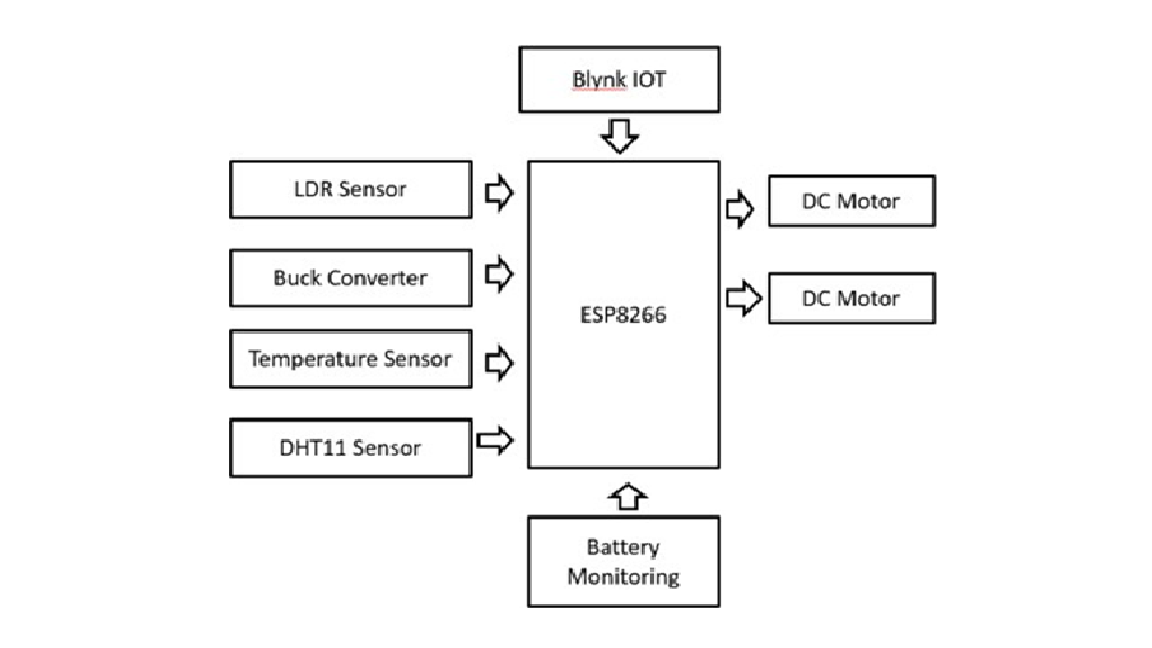A Comprehensive Review of IoT-Enabled Dual Axis Solar Tracker Systems with Integrated Weather Sensors
Main Article Content
Abstract
When it comes to a dual-axis solar energy tracking system that makes use of stiff sensors, this article offers a full examination of the design, technology, and control strategies involved. Scientists, engineers, and policymakers working in the field of solar energy technology will find the findings of this inquiry to be helpful. These findings will provide insight into the most advanced dual-axis solar tracking system using physical sensors. A further discussion is held regarding its capacity to enhance the performance of solar tracking, which paves the door for further research and development in this area. The system is controlled by a NodeMCU microcontroller and utilizes servo or DC motors to precisely align the panels based on the input from Light Dependent Resistor (LDR) sensors, which detect the direction of maximum sunlight. In addition to the tracking mechanism, the system includes a buck converter to monitor and regulate the battery's charge level, which is crucial for maintaining efficiency and prolonging battery life. The battery status is continuously monitored and displayed on the Blynk IoT cloud platform, providing real-time data to users. Furthermore, the system is equipped with a temperature and humidity sensor, which monitors environmental conditions. These parameters are also tracked on the Blynk dashboard, enabling users to assess the operational environment of the solar tracker. This project demonstrates a comprehensive approach to maximizing solar energy collection while providing valuable environmental data, making it a versatile solution for renewable energy applications.
Downloads
Article Details

This work is licensed under a Creative Commons Attribution-NoDerivatives 4.0 International License.
